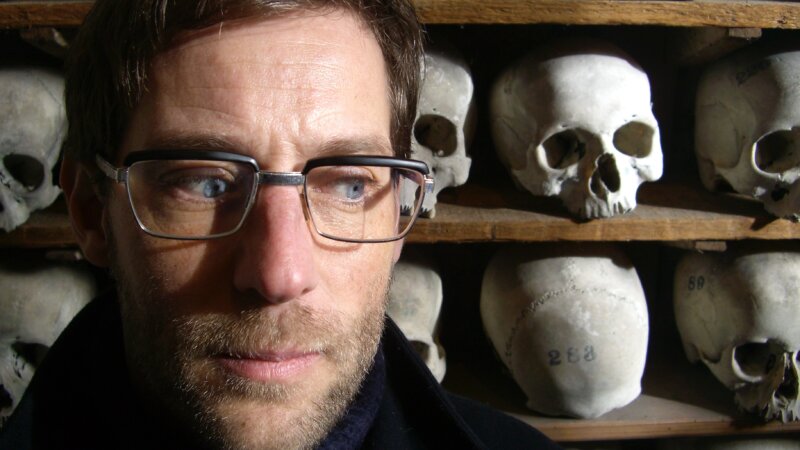Citizens Advice: Citizens Advice Sheffield
Around 40% of the British population will be in touch with Citizens Advice at some point in their lifetime, a staggering statistic when you consider the wide range of services they offer - everything from benefits and debt advice to housing, employment and immigration support, most of which is provided by committed volunteer advisors.
Sheffield Citizens Advice and Law Centre is one of the biggest Citizens Advice organisations in the UK, serving over 20,000 people each year, and was formed by a recent merger of various advice services across the city. Andy Buck had a hand in setting up one of its predecessors, Fox Hill and Parson Cross Advice Service, in the late 80s, but returned to Citizens Advice after working for the NHS to take up the position of Chief Executive in 2014.
What's the history of Citizens Advice in Sheffield?
We can trace the history of independent, voluntary sector advice in the city at least as far as the 70s. Advice was in very good part born out of community action and, to a degree, political action. Sharrow and Pitsmoor Citizens Advice Bureaus, for example, are among our predecessors - you can trace their history back in that way. From then onwards there was a growth of small advice organisations in the city, and during the 80s, 90s and into this millennium, there were various comings together of those organisations, sort of mini mergers. In October 2013, before I was involved with this, there was a 12-way merger to create Sheffield Citizens Advice and Law Centre, to take responsibility for all of the services provided by all of those predecessors.
How is Sheffield Citizens Advice funded?
We've got 40 or so funding streams, some big and some much smaller. The funding we get from the Council is the bedrock. We then get funding through the Money Advice Service for debt advice. We have got three National Lottery funded projects. We also provide independent mental health advocacy services, which is distinct from the advice services that we provide.
Is there a tension between receiving that amount of government funding and being critical of government policy?
Well, we're very clear that we are an organisation that will research what is happening in social policy and will campaign accordingly. In 2014, we published a report about benefit sanctions, which was drawn from the experience of our staff working with clients who'd experienced sanctions. We described in that report the very significant failings of the sanctions system, and then, for example, our report was used by Paul Blomfield MP as the basis for a parliamentary debate he called about sanctions. We don't feel constrained in playing that role by the fact that a good part of our funding is sourced from public funding.
Shouldn't all of the work that Citizens Advice does be funded and delivered by the government?
Our independence and impartiality is absolutely crucial. People who come to us for help can be confident that they'll get a service that's free, confidential and impartial of government, and indeed of other agencies with which we may need to interact. If what we were doing was being delivered by government, national or local, it would inevitably be the case that people's confidence in it would be different. Some people simply wouldn't go there for the help they're asking for.
How does Citizens Advice interact with other organisations and services in the city?
Let's use asylum seekers and refugees as an example. We - particularly in light of the recent, very sad closure of the Northern Refugee Centre, which has created a bit of a vacuum - are now working with several other organisations - ASSIST, South Yorkshire Refugee Law and Justice, Voluntary Action Sheffield, City of Sanctuary Sheffield, The Red Cross - to link our services together, so that we are each really clear about the particular help and support that we can offer to people, so that we've got much better channels for people being signposted or referred between those different services.
You recently secured some funding to offer advice through food banks in Sheffield. How will that work?
We're going to train food bank volunteers, so they can develop their knowledge and skills - not to give advice, but to identify when people may need advice - and we will have advice workers based in at least eight food banks in the city. We know that we're reaching people through that route who would find it very hard to reach us, particularly because the food bank is a point of last resort, and when you've reached that point of last resort, accessing other help is really difficult.
One of the recommendations you made in your sanctions report was for people to be given a warning before being sanctioned, which they aren't currently.
Absolutely. The idea that we punish people by imposing real hardship on them is just inhuman, hardship that includes the inability to feed oneself and one's kids. We don't punish people in prisons by starving them, so why are we punishing people who allegedly have transgressed the benefits system with hunger?
It also makes no economic sense, because those people are then left relying on government funding for food banks, for example.
No, it doesn't make any economic sense whatsoever. What makes economic sense is enabling people to get back on their two feet and to find ways out of poverty. Poverty costs in many hidden ways. It's not in our collective interests, as a community, to have people facing such dire poverty, in the short term or in the long term.
What sort of challenges does Citizens Advice face in the near future?
We will continue to see many people finding the welfare benefits system, debt, housing, employment, discrimination and immigration really challenging in their lives, so the need for the help that we provide simply is not going to go away, as much as we would like it to. So an absolutely critical challenge for us is how we meet that continued high level of need and demand, and that of course is in part dependant on protecting and sustaining the resources that we've got. It means trying to cling onto as much of the money as we can, and therefore our paid staff, and continuing to recruit, retain and support our fantastic army of volunteers.
How can people get involved and help out at Citizens Advice?
We always like to hear from people who would like to volunteer with us. People need to bring a desire to help people through the services that we offer. They need to bring a willingness to dedicate a fair chunk of time to volunteering with us. And of course, people need to get to grips with the benefits system, the debt system, because it's about that they're going to have to advise people.
We've got young people, students, retired people, people who have spent a lifetime involved in community activism, retired NHS consultants - this extraordinary mixture of people. We're far more interested in people's competency and skills than in their formal qualifications.
If you want to support Sheffield Citizens Advice, you can volunteer, donate or join their 'Friends Of' scheme.
volunteering@sheffieldcitizensadvice.org.uk
mydonate.bt.com/charities/sheffieldcitizensadvice
friends@sheffieldcitizensadvice.org.uk
advicesheffield.org.uk )







